Take Control of Your Health with PCOS Management
At Perspective Health, we provide comprehensive care for Polycystic Ovary Syndrome (PCOS), addressing its symptoms and underlying causes. From hormone regulation to weight management, our personalized treatments empower you to live your best life.
Understanding Polycystic Ovary Syndrome (PCOS)
PCOS is a common hormonal disorder that affects women of reproductive age. With symptoms that vary widely, PCOS can cause irregular periods, excess hair growth, weight gain, and fertility challenges. At Perspective Health, we provide tailored treatments to address these concerns and improve your quality of life.
- Comprehensive care for PCOS-related symptoms.
- Hormone regulation and fertility support.
- Personalized treatment plans for lasting results

What is PCOS?
PCOS is a hormonal imbalance where women produce higher levels of androgens, affecting ovulation and causing various health concerns. It impacts approximately 10% of women and is a significant cause of infertility. At Perspective Health, we specialize in treating PCOS with a personalized, patient-first approach.
PCOS Symptoms We Address:
- Irregular Menstrual Cycles: Fewer than eight periods per year or irregular timing.
- Hirsutism (Excess Hair): Unwanted hair growth on the face, chest, or back.
- Acne and Skin Issues: Acne and darkened skin patches.
- Weight Challenges: Difficulty losing weight or unexplained weight gain.
- Thinning Hair: Hair loss or male-pattern baldness.
Potential Causes of PCOS:
- Insulin Resistance: Reduced sensitivity to insulin, causing higher androgen production.
- Genetics: A family history of PCOS increases your risk.
- Obesity: A contributing factor to hormonal imbalances in PCOS.
Why Does PCOS Affect Fertility?
PCOS disrupts the hormonal cycle necessary for regular ovulation, leading to irregular periods and difficulties releasing an egg. This can make it harder to conceive. Additionally, the uterine lining builds up, causing heavy and irregular bleeding. Our treatments address these issues with a focus on restoring hormonal balance and improving fertility.

FAQs
What are the main symptoms of PCOS?
PCOS symptoms include irregular periods, excessive hair growth, acne, weight gain, and thinning hair. Some women may experience no symptoms at all.
How does PCOS cause fertility problems?
PCOS prevents regular ovulation, making it difficult to release an egg each month. This can result in irregular periods and challenges with conception.
Is PCOS linked to other health problems?
Yes, PCOS is associated with insulin resistance, an increased risk of diabetes, heart disease, and endometrial cancer if untreated.
Can PCOS be treated?
While PCOS cannot be cured, it can be managed with treatments like hormone regulation, weight management, and medications tailored to your specific symptoms.
Ready to Take Control of Your PCOS?
Whether you’re looking to regulate your hormones, manage your weight, or improve your fertility, Perspective Health provides personalized treatments for PCOS. Schedule your consultation with our expert Nurse Practitioners today.

